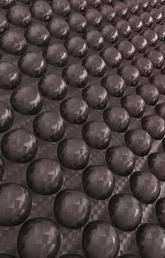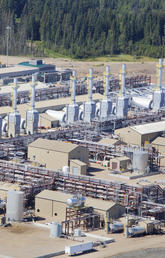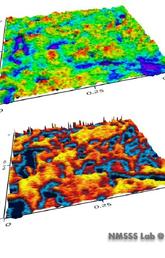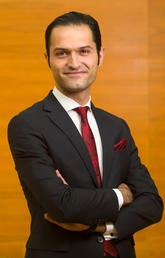Jan. 17, 2022
Schulich professor determined to change narrative around carbon
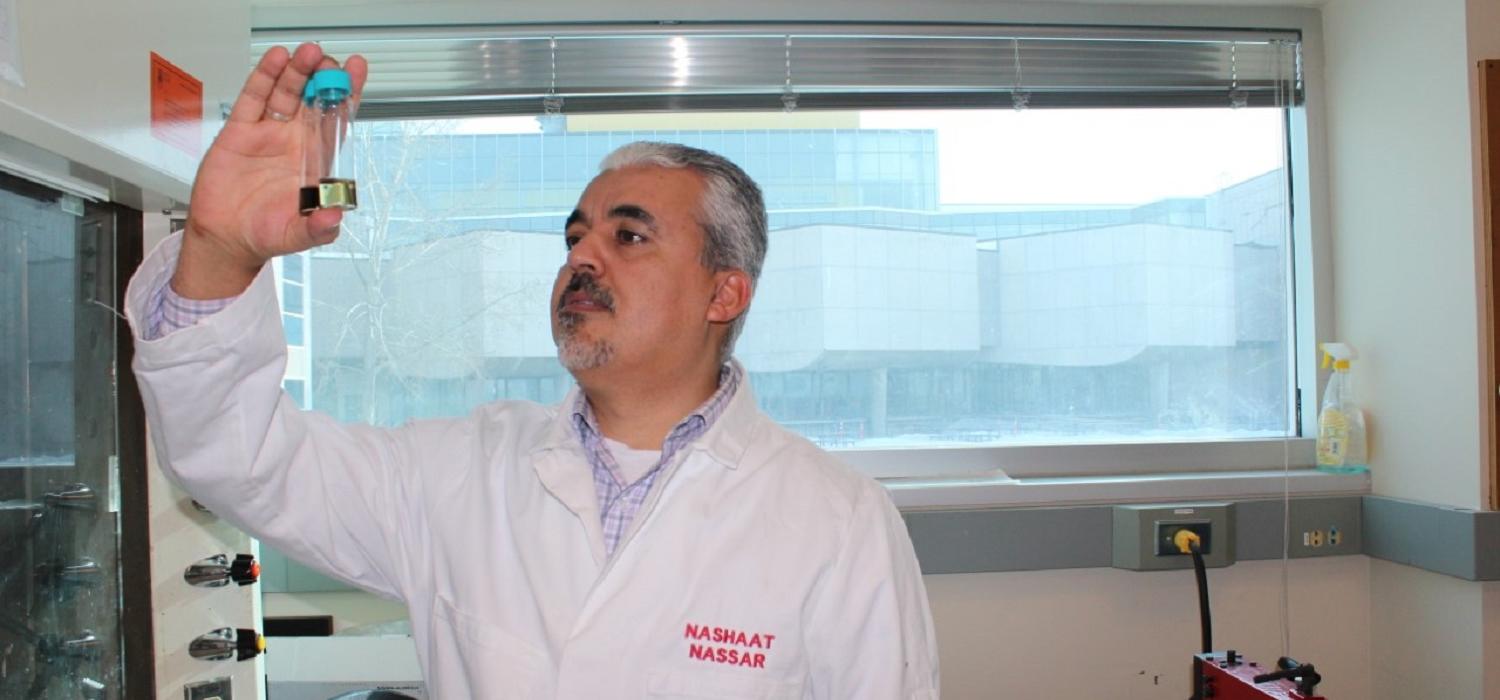
As a lifelong researcher, Dr. Nashaat Nassar has a dream.
Sitting in his laboratory, focusing on the development and application of naturally derived nanomaterials in the oil and gas industry, he goes so far as to call it a promise.
“I believe we should have a shift in our thinking about carbon,” Nassar, PhD, says. “Carbon is an unpleasant word when it is in the gaseous form. But in solid form, carbon is building materials that we use everyday.”
He calls Calgary the “engineering capital of Canada,” rich with opportunities for invention, innovation and design.
Nassar’s determination and enthusiasm has also been recognized, as he was recently named the winner of The Canadian Journal of Chemical Engineering Lectureship Award, which is given to someone who has made an “outstanding contribution to chemical engineering, demonstrating exceptional promise, while working in Canada.”
He’s also the first UCalgary professor to receive the award.
Hard work pays off
A professor in the Department of Chemical and Petroleum Engineering at the Schulich School of Engineering, Nassar has an impressive resume.
He established a world-leading, industry-connected Laboratory for Nanomaterials Research here, which has attracted more than $10 million in research funds. It’s where he is working with several national and international oil and gas companies to commercialize his research.
Nassar has also had more than 120 peer-reviewed journal papers published, 10 book chapters, two books, seven filed patents and six invention disclosures in the U.S., and founded two spinoff companies.
He has also won several awards, and is humbled by being recognized once again. He says:
It feels like my hard work is paying off. What makes the Lectureship Award so special is that it recognizes and values our research activities and leadership roles, confirming that my team is doing cutting-edge research.
Creating a greener future
In Nassar’s eyes, innovation is the mother of invention. He sees many opportunities for Alberta to use its energy knowledge and engineering prowess to lead the world in developing new technologies to improve the sustainability of the province’s energy industry.
“I believe, with the increase of the world’s population, industrialization and modernization, that the world is in need of all kinds of energy,” Nassar says. “What we need to look for here is not only diverse energy resources, but also a culture shift in the current methods of oil and gas exploitations.”
He adds that we need to focus on using new technology like nanotechnology to improve extraction processes to make them cleaner and greener with less water consumption and energy use.
Exploring all opportunities
Whether it is developing a sponge for soaking up aquatic oil spills composed of magnetic boron nitride, or converting low-rank coal and biomass into value-added products like green fertilizer, Nassar is always looking for solutions.
“The good thing about naturally derived nanomaterials is that they are tailor-made, meaning you can tune their properties based on the application,” he says. “Recently, we made a nano-scavenger that is so small and smart, it could selectively remove precious metals like lithium and vanadium from coexisting ion mixtures.”
In winning the award, Nassar was recognized for not only his accomplishments and contributions, but also for bridging the gap between industry and academia.
“Not only is he pushing the limits of science and technology in his field, but he also does so in collaboration with national and international top-ranked industrial sponsors who understand and benefit from his unique approach to solving real-world problems,” reads his description on the award website.
Nassary says the recognition also gives his teammates more confidence about their research work.
“Innovation happens in a culture of trust and this award is a sign,” Nassar says. “I am very excited about how we are taking our knowledge beyond the lab and classroom, and to put it into practice.”

